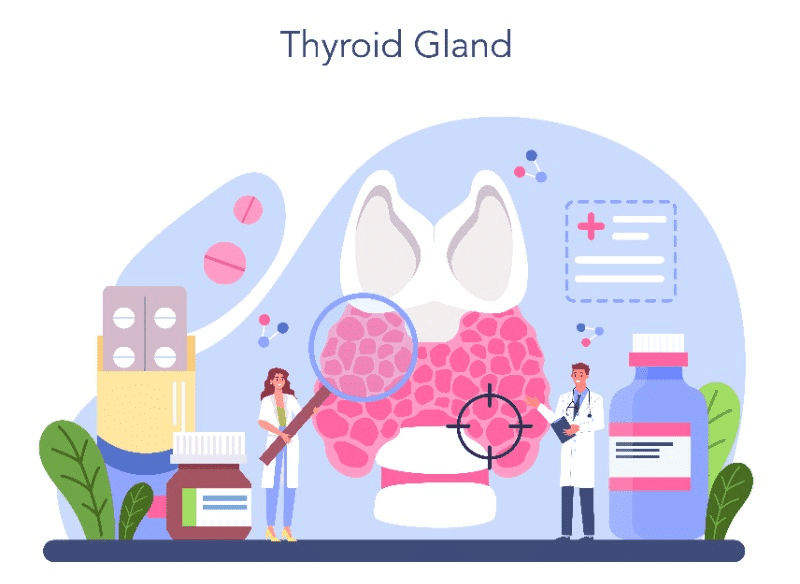Key Takeaways
-
Be Mindful of Antidiabetic Medications: If you are taking antidiabetic drugs, consult your healthcare provider before using alpha-lipoic acid or antioxidant supplementation to avoid potential interactions that may affect your blood sugar levels.
-
Caution with Thyroid Medication: Alpha-lipoic acid may impact the effectiveness of thyroid medication and antioxidant supplementation, so it’s important to discuss its use with your doctor if you are undergoing thyroid treatment.
-
Monitor Vitamin B1 Levels: Regular monitoring of vitamin B1 levels is advisable if you use alpha-lipoic acid, as it may alter the levels of this essential nutrient in your body.
-
Consult with Your Oncologist: If you are undergoing chemotherapy, it’s crucial to discuss the use of alpha-lipoic acid and antioxidant supplementation with your oncologist to understand its potential effects on the efficacy of your chemotherapy treatments.
-
Consider Iron Supplementation: Due to the reduction of iron absorption caused by alpha-lipoic acid and antioxidants, diabetic patients using this supplement should consider discussing iron supplementation with their healthcare provider.
-
Discuss with Your Doctor: Before using alpha-lipoic acid, especially if you are on anti-inflammatory medications or antioxidants, consult your healthcare provider to understand potential interactions and their impact on your health.
Unveiling the intricate web of alpha-lipoic acid interactions with antioxidants, glutathione, and drugs, this listicle is your go-to guide for navigating its multifaceted relationships with other substances. Discover crucial insights into how alpha-lipoic acid, antioxidants, and drugs can interact with various compounds, from medications to supplements.
Intrigued? Scroll down for reviews of our top picks and dive deep into alpha-lipoic acid interactions, antioxidants, glutathione, and drug effects.
1. Interaction with Antidiabetic Drugs
Alpha-lipoic acid, antioxidants, diabetes mellitus, efficacy, glutathione This interaction is particularly crucial for diabetic patients as it can affect their overall health and well-being.
Research suggests that alpha-lipoic acid and antioxidants may help improve insulin sensitivity and glucose metabolism in individuals with diabetes mellitus. Combining antioxidants with antidiabetic drugs can make them work better to lower blood sugar. Diabetic patients need to be careful when using alpha-lipoic acid and antidiabetic medications together.
Consulting a healthcare professional before initiating this combined therapy is imperative for diabetic patients to mitigate any potential adverse effects. Given the complexity of diabetes management and the diverse range of antidiabetic drugs available, personalized guidance from a healthcare provider ensures safe and effective treatment outcomes.
2. Impact on Thyroid Medication Efficacy

Alpha-lipoic acid, when taken alongside thyroid medication, may impact the efficacy of the medication. This is due to its potential interference with the absorption or utilization of thyroid medication in the body.
Research suggests that alpha-lipoic acid can affect thyroid hormone levels and may lead to fluctuations in these levels when used concurrently with thyroid medications. These fluctuations could potentially compromise the effects of the prescribed medication.
Patients who are currently taking thyroid medication should consult their healthcare provider before considering alpha-lipoic acid supplements. Seeking medical advice is crucial as it allows for a thorough assessment of individual health conditions and ensures that any potential interactions between alpha-lipoic acid and thyroid medications are carefully considered.
It’s important to note that while some studies have indicated possible interactions between alpha-lipoic acid and thyroid medications, further research is needed to understand the extent of these interactions fully.
3. Alteration of Vitamin B1 (Thiamine) Levels
Alpha-lipoic acid can impact the balance of thiamine, an essential nutrient in the body. It may alter vitamin B1 levels, affecting overall health and well-being. Thiamine is crucial for energy metabolism and nerve function, making it vital for various bodily processes.
Monitoring thiamine levels becomes crucial when using alpha-lipoic acid supplements to avoid effects. This ensures that any potential alterations in thiamine are identified and managed appropriately. Individuals with existing deficiencies or conditions affecting thiamine absorption should be particularly vigilant when considering alpha-lipoic acid supplementation.
Research suggests alpha-lipoic acid’s effects on pyruvate dehydrogenase can influence serum lipids and lipid peroxidation. These findings underscore the importance of understanding how alpha-lipoic acid may affect lipid profile and oxidative stress within the body.
In a blind study conducted on patients experiencing neuropathic symptoms associated with low thiamine levels, supplementation with alpha-lipoic acid (ALA) demonstrated positive outcomes by improving symptoms related to thiamine deficiency.
It is evident from these studies that while alpha-lipoic acid presents potential benefits, its interaction with vitamin B1 necessitates careful consideration to ensure optimal health outcomes when incorporating this supplement into one’s regimen.
4. Effects on Chemotherapy Treatments
Alpha-lipoic acid may potentially interfere with the effectiveness of certain chemotherapy drugs, impacting their ability to target cancer cells. This interference could reduce treatment efficacy and compromise the patient’s overall outcome.
Patients undergoing chemotherapy should consult their oncologist before using alpha-lipoic acid as a supplement. To ensure optimal therapeutic outcomes, healthcare providers must know all substances patients consume during cancer treatments.
Chemotherapy is a critical aspect of cancer treatment, and any potential interaction between alpha-lipoic acid and these medications must be carefully considered. The priority is always the well-being and safety of the patient, making it essential for medical professionals to be informed about any supplements or alternative therapies being used alongside conventional treatments.
5. Reduction of Iron Absorption
When used as a supplement, alpha-lipoic acid can reduce iron absorption in the body. This means lower iron levels may be available for essential bodily functions due to this interaction.
Research suggests alpha-lipoic acid, primarily found in plant-based foods and supplements, can hinder the absorption of non-heme iron. Consequently, individuals who rely on these sources for their iron intake should take caution when using alpha-lipoic acid supplements.
For those with existing iron deficiency or anemia, it’s crucial to consult healthcare professionals before incorporating alpha-lipoic acid into their regimen. The potential effects on human erythrocytes (red blood cells) and overall iron levels underscore the importance of understanding these interactions.
Incorporating foods rich in vitamin C alongside non-heme iron sources can help mitigate the reduction in absorption caused by alpha-lipoic acid. Vitamin C enhances non-heme iron uptake; combining it with meals or supplements containing both substances could counteract any negative effects on iron levels.
Individuals considering alpha-lipoic acid supplementation should prioritize informed decision-making based on personalized health considerations and professional guidance.
6. Potential Interaction with Anti-Inflammatory Medications
When considering alpha-lipoic acid and anti-inflammatory medications, there is a potential for an interaction that could impact the latter’s efficacy. Patients using anti-inflammatory drugs should consult their healthcare provider before taking alpha-lipoic acid to ensure optimal treatment outcomes.
Alpha-lipoic acid has shown promise in managing chronic diseases such as multiple sclerosis and skin aging. However, its interaction with anti-inflammatory medicines could affect their effectiveness. Therefore, it’s crucial for individuals undergoing oral treatment with anti-inflammatory drugs to seek professional medical advice before incorporating alpha-lipoic acid into their regimen.
In a prospective study abstract, researchers found that combining certain substances like alpha-lipoic acid with prescribed medications might lead to adverse effects or reduced therapeutic benefits. This highlights the significance of consulting healthcare providers to avoid potential complications from concurrently using these compounds.
Patients dealing with autoimmune syndromes or contact dermatitis who are also on medication for these conditions need to be particularly cautious about introducing alpha-lipoic acid without medical supervision due to its possible interactions with existing treatments.
7. Influence on Levothyroxine Absorption
Alpha-lipoic acid, or lipoic acid, can impact the absorption of levothyroxine, a crucial thyroid hormone replacement medication. This interaction is significant because it may affect the effectiveness of levothyroxine in managing hypothyroidism.
Patients who are prescribed levothyroxine should be cautious when considering alpha-lipoic acid supplements. Seeking medical advice before using these supplements is essential to ensure that they do not interfere with the absorption or efficacy of levothyroxine.
In a study published in “Thyroid Research,” researchers found that taking alpha-lipoic acid alongside levothyroxine led to reduced levels of T4 (the inactive form of thyroid hormone) and T3 (the active form). These findings emphasize the potential impact of alpha-lipoic acid on thyroid hormone levels and its implications for individuals relying on levothyroxine therapy.
Another study in “The Journal of Clinical Endocrinology & Metabolism” highlighted that patients undergoing treatment for hypothyroidism experienced alterations in their thyroid function tests after consuming alpha-lipoic acid supplements.
Given these insights, it’s evident that the influence of alpha-lipoic acid on levothyroxine absorption warrants careful consideration by healthcare professionals and patients alike. It underscores the importance of consulting healthcare providers before introducing alpha-lipoic acid into a levothyroxine regimen.
8. Interference with Cisplatin Efficacy
Alpha-lipoic acid might interfere with the effectiveness of cisplatin, a vital chemotherapy medication used in treating various types of cancer. This interference could potentially impact the clinical efficacy of cisplatin, particularly in combating certain forms of cancer.
When alpha-lipoic acid interacts with cisplatin, it may affect the drug’s ability to combat cancer cells and manage oxidative stress. As an antioxidant, alpha-lipoic acid can increase levels of superoxide dismutase (SOD), which may counteract the mechanisms by which cisplatin exerts its anticancer effects.
Patients undergoing cisplatin treatment should engage in thorough discussions with their healthcare providers about any use or potential inclusion of alpha-lipoic acid supplements in their regimen. It is crucial for individuals receiving this chemotherapy to ensure that there are no adverse interactions between alpha-lipoic acid and their prescribed medications.
9. Modulation of Blood Pressure Medications

Alpha-lipoic acid has the potential to modulate the effects of blood pressure medications, influencing blood pressure regulation when used alongside these medications. It is believed that alpha-lipoic acid may affect blood flow and nitric oxide levels, which are crucial in regulating blood pressure.
A systematic review abstract published in Molecular and Cellular Biochemistry highlighted that alpha-lipoic acid supplementation could lead to improvements in heart rate variability and endothelial function, both of which are relevant factors in managing blood pressure.
In a study conducted by researchers at the University of Maryland Medical Center, it was found that alpha-lipoic acid might help reduce stroke risk by protecting brain cells from damage caused by a stroke. This suggests potential benefits for individuals with hypertension who are at an increased risk of stroke.
Due to its possible interactions with blood pressure medications, individuals combining alpha-lipoic acid with such drugs should be closely monitored under medical supervision. The combination may necessitate medication dosages or regimen adjustments to ensure optimal efficacy without adverse effects on overall cardiovascular health.
Healthcare providers must be aware of any supplements or acids their patients take as part of their commitment to providing comprehensive care. Encouraging open communication about supplement usage can facilitate informed decision-making regarding treatment plans for conditions like hypertension.
10. Interaction with Alcohol Consumption
Combining alpha-lipoic acid and alcohol may affect alcohol metabolism and its impact on the body. This interaction could alter both substances’ activity within the body, leading to unforeseen effects.
Research suggests that individuals consuming alcohol should consider consulting a healthcare professional before using alpha-lipoic acid supplements. This precaution is crucial in monitoring the potential risks of combining these two substances.
A review published in a reputable journal highlighted the need for further research into this specific combination. Observational studies involving different age groups, including adolescents, can provide valuable insights into the management of alpha-lipoic acid and alcohol consumption.
11. Risk of Hypoglycemia in Insulin Therapy
Alpha-lipoic acid, when used alongside insulin therapy, can heighten the risk of hypoglycemia. This is due to its potential to enhance the effects of insulin, leading to lower blood sugar levels in individuals undergoing insulin treatment.
Individuals on insulin therapy must exercise caution and seek medical advice before incorporating alpha-lipoic acid into their regimen. The interaction between alpha-lipoic acid and insulin may necessitate adjustments in the dosage or timing of insulin administration to prevent hypoglycemic episodes.
Research has shown alpha-lipoic acid can improve insulin sensitivity and reduce blood glucose levels. However, when combined with exogenous insulin, this effect may be amplified, potentially resulting in dangerously low blood sugar levels.
Individuals using alpha-lipoic acid and insulin should regularly monitor their blood sugar levels and be vigilant for symptoms of hypoglycemia, such as dizziness, confusion, sweating, or palpitations.
12. Enhanced Effects of Weight Loss Supplements
Alpha-lipoic acid may help weight loss supplements work better. It can improve energy production in cells and make insulin work better. This can help control blood sugar levels and reduce fat storage.
In a study involving overweight individuals, oral supplementation with alpha-lipoic acid significantly decreased body weight and BMI compared to a placebo group. Furthermore, it’s been observed that combining alpha-lipoic acid with other antioxidants like glutathione can improve metabolic function and overall health.
However, individuals considering using alpha-lipoic acid for weight loss should consult a healthcare provider for guidance. This is crucial due to potential interactions with other medications or supplements and individual variations in response and tolerance.
Summary
Alpha-lipoic acid can affect how some medications and nutrients work in your body. It can change how well diabetes, thyroid, and chemotherapy drugs work. It can also affect how your body absorbs vitamin B1 and iron. Plus, it may change how anti-inflammatory and blood pressure drugs work and how your body handles alcohol. If you use insulin or weight loss supplements, talking to a doctor before using alpha-lipoic acid is important.
It’s important to talk to a doctor before taking alpha-lipoic acid with other meds or supplements. Knowing about these interactions is key to making good choices and staying healthy. Make sure to thoroughly chat with your doctor to get the best treatment and avoid risks.
Frequently Asked Questions
Can alpha-lipoic acid interact with antidiabetic drugs?
Yes, alpha-lipoic acid can interact with antidiabetic drugs by lowering blood sugar levels. Monitoring glucose levels closely and adjusting medication dosage as needed is important.
How does alpha-lipoic acid impact thyroid medication efficacy?
Alpha-lipoic acid may affect the absorption of thyroid medication. Taking alpha-lipoic acid supplements at a time different from thyroid medications is advisable to avoid potential interactions.
Does alpha-lipoic acid alter vitamin B1 (thiamine) levels in the body?
Yes, alpha-lipoic acid can lower thiamine levels in the body. This is particularly significant for individuals already deficient in thiamine or have conditions requiring higher thiamine intake.
What effects does alpha-lipoic acid have on chemotherapy treatments?
Alpha-lipoic acid may interfere with the efficacy of certain chemotherapy drugs. Patients undergoing chemotherapy should consult their healthcare provider before using alpha-lipoic acid supplements.
Can taking alpha-lipoic acid reduce iron absorption in the body?
Studies suggest that high doses of alpha-lipoic acid might hinder iron absorption. Individuals with anemia or those at risk of iron deficiency should consider this potential interaction.

